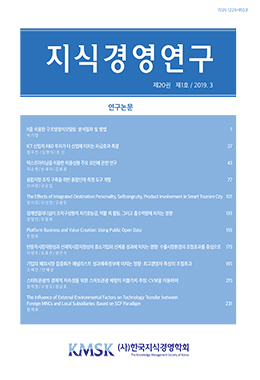Technology transfer from a multinational company to a local subsidiary is essential for successful local market operations. This study aims to analyze the impact of market, cultural and institutional environmental factors on international technology transfer and innovation performance based on the S-C-P paradigm. We collected data from one hundred ninety-five subsidiaries of Korean parent firms located in seventeen countries and used structural equation modeling to test hypotheses. The analysis findings are as follow; First, both market and cultural environment directly affect international technology transfer. However, institutional environment such as protection of intellectual property does not affect international technology transfer. Due to the less risk of technology disclosure involved in technology transfer within the MNE organization can be not relationship between protection of intellectual property in the host country and the foreign subsidiary’s transfer of technology. The risk of infringement of intellectual property is relatively low in intra-firm transfer of technology. Second, the technology introduced from the parent company has a positive effect on the innovation performance of local subsidiaries. This implies that multinational companies that have entered unfamiliar overseas markets should be able to effectively transfer the inherent advantages of the parent company to their overseas subsidiaries, and that their ability to adapt to the local environment is important.




